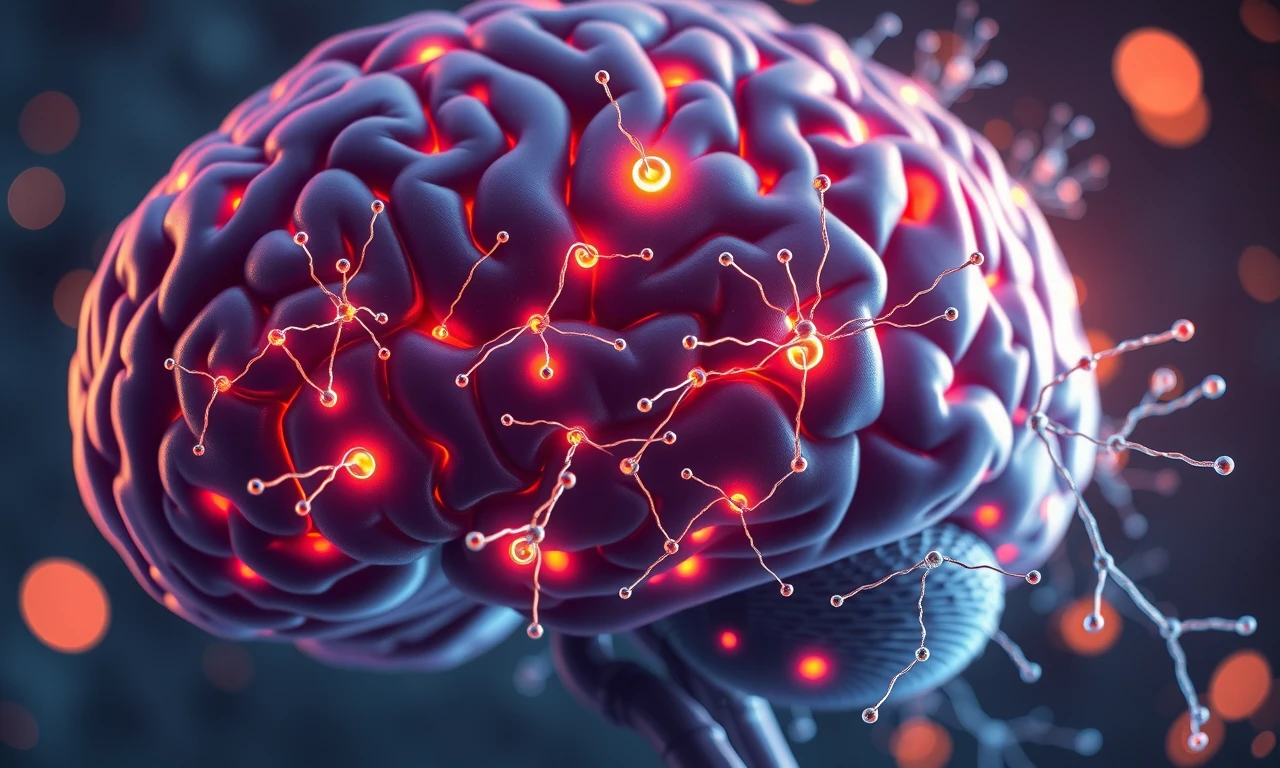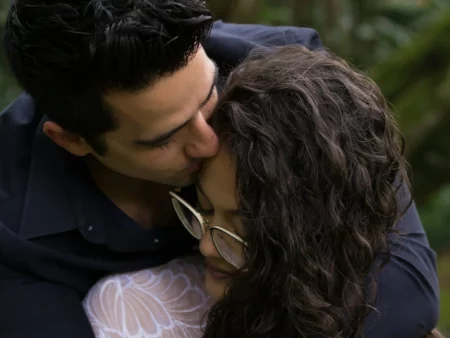At the heart of human existence lies an enigmatic force that has captivated philosophers, scientists, and artists alike – the essence of connection. This profound experience transcends mere words, weaving a tapestry of emotion, intimacy, and understanding that shapes our very sense of being. It’s a real, tangible warmth that envelops us, fostering trust and vulnerability in equal measure.
This article delves into the multifaceted nature of this powerful bond, exploring its psychological depths, biological underpinnings, and cultural nuances. We’ll unravel the intricate threads of passion, devotion, and commitment that intertwine to create the rich tapestry of human relationships. Join us on a journey to unveil the essence of what makes us feel alive, cherishing every moment and embracing the profound impact it has on our lives, from the joy of expecting a child to the selflessness we give each day.

The Psychology of Love: Unraveling Emotional Bonds
The psychological tapestry of emotional bonds illuminates the intricate nature of human connections. At its core, affection forms the foundation upon which relationships are built, nurturing a sense of security and unity between individuals. This profound connection influences our mental well-being, shaping our self-perception and guiding our life choices.
Renowned psychologists have delved into the depths of this phenomenon, offering insights that help us unravel its mysteries. As one expert in the field eloquently states:
The symphony of human connection orchestrates a profound impact on our psychological landscape, harmonizing our inner world with the rhythms of shared experiences and mutual understanding.
This perspective underscores the transformative power of emotional bonds on our mental health and overall life satisfaction. Key components forming the essence of these connections include:
- Empathy: The bridge of understanding spanning hearts
- Sincerity: The foundation of trust supporting lasting relationships
- Kindness: The gentle force nurturing growth and fostering compassion
- Loyalty: The unwavering commitment withstanding life’s storms
- Admiration: The spark igniting passion and inspiring greatness
These elements intertwine, creating a robust framework for emotional bonds that profoundly influence our self-esteem. When we feel valued and supported, our confidence blossoms, empowering us to face life’s challenges with resilience. This newfound strength permeates our decision-making processes, guiding us towards choices that align with our authentic selves and fostering a sense of harmony within.
Moreover, the impact of these connections extends beyond the individual, creating ripples that touch the lives of those around us. As we navigate the complexities of relationships, we learn to balance giving and receiving, cultivating an environment of mutual support and understanding. This delicate equilibrium nurtures a cycle of uplifting interactions, where each moment presents opportunities for growth and celebrating.
In essence, the psychology of emotional bonds reveals a profound truth: our capacity for connection shapes not only our personal experiences but also the collective tapestry of human interaction. By embracing these bonds with openness and vulnerability, we unlock the potential for deeper understanding, inspiring a world where empathy and compassion flourish.
Love Across Cultures: A Global Perspective
The tapestry of human connection weaves a vibrant mosaic across cultures, each thread representing a unique perspective on the essence of relationships. From the ancient Greeks’ nuanced categorization to the intricate concepts found in Eastern philosophies, our global understanding of affection reflects the rich diversity of human experience.
In the West, the concept of romantic love often takes center stage, emphasizing individual choice and personal fulfillment. This contrasts with Eastern perspectives, where familial duty and societal harmony play pivotal roles in shaping relationships. The Chinese notion of ‘yuanfen,’ for instance, speaks to a destined affinity between people, reflecting a belief in cosmic connections that transcend individual will.
| Culture | Love Concept | Key Aspect |
|---|---|---|
| Greek | Eros, Philia, Agape | Multifaceted nature |
| Chinese | Ren, Yuanfen | Harmony and destiny |
| Indian | Bhakti, Kama | Spiritual and physical union |
| Japanese | Amae, Ai, Koi | Interdependence and emotional bonds |
Languages around the world offer unique words that capture nuanced expressions of affection, often defying direct translation. The Portuguese ‘saudade’ encapsulates a profound longing, while the Yaghan ‘mamihlapinatapai’ describes a wordless yet meaningful look shared between two people, each hoping the other will initiate something they both desire but are reluctant to start.
These linguistic gems reflect deep-seated cultural values. The Islamic concept of ‘ishq’ represents an all-consuming passion, emphasizing the intensity of devotion. In contrast, the Jewish notion of ‘chesed’ embodies loving-kindness, highlighting the importance of selflessness in relationships.
Cultural differences profoundly shape expectations and expressions of affection. In some societies, public displays of tenderness are celebrated, while others value respect and emotional restraint. The way couples navigate milestones like expecting a child or celebrating anniversaries can vary dramatically across cultures, reflecting diverse values and traditions.
Understanding these cultural nuances fosters greater acceptance in our increasingly interconnected world. By embracing the rich tapestry of global perspectives on relationships, we open ourselves to new ways of expressing care, honesty, and forgiving. This cultural awareness encourages us to present ourselves authentically while accepting the diverse expressions of affection we encounter.
As we navigate the complexities of cross-cultural relationships, we learn to sharing and receive affection in myriad forms, enriching our own emotional vocabulary. This journey of understanding invites us to practice expressing and accepting different forms of care, fostering a more inclusive and empathetic global community.
The Many Faces of Love: Types and Manifestations
The kaleidoscope of human connection reveals a tapestry of diverse emotional bonds, each thread contributing uniquely to our personal growth and well-being. Let’s explore the multifaceted nature of these connections:
- Romantic Ardor: The passionate flame between partners, blending physical attraction with emotional intimacy. This connection evolves from initial infatuation to a profound bond built on shared experiences and understanding.
- Familial Foundations: The unbreakable ties binding relatives, characterized by unconditional support and shared history. These relationships often shape our capacity for future connections.
- Platonic Resonance: The harmonious rapport between friends, offering companionship without romantic or familial obligations. These bonds provide emotional sustenance and often endure due to their chosen nature.
- Self-Embrace: The cornerstone of healthy relationships, self-love involves accepting oneself wholly, fostering personal growth, and maintaining boundaries. It’s the wellspring from which all other forms of affection flow.
- Communal Kinship: The sense of belonging within larger groups, from local communities to global causes. This collective affection drives social progress and fosters interconnectedness.
These diverse manifestations interweave to create a rich emotional tapestry, each playing a vital role in our well-being. As we navigate life’s journey, these connections ebb and flow, evolving with our experiences and growth.
In our formative years, familial bonds dominate, shaping our understanding of attachment. As we mature, romantic connections often take center stage, offering intense emotional and physical intimacy. Simultaneously, platonic relationships deepen, providing crucial support networks.
With age comes wisdom, and many find a profound shift towards self-acceptance. This inner peace often radiates outward, enhancing all other relationships. For some, the later stages of life bring a renewed focus on familial bonds, particularly the joy of grandparenthood.
Embracing this spectrum of connections fosters emotional resilience and fulfillment. By nurturing each type of bond, we create a balanced emotional ecosystem that sustains us through life’s triumphs and challenges. The ability to give and receive in its many forms is truly the essence of the human experience.
The Biology of Bonding: Love’s Chemical Cocktail
The intricate dance of neurotransmitters and hormones orchestrates the symphony of human bonding, revealing the profound biological underpinnings of our most cherished connections. This chemical waltz unfolds in three distinct movements, each characterized by its unique neurochemical signature.
The overture begins with lust, a primal urge driven by testosterone and estrogen. These hormones ignite the flames of desire, propelling individuals towards potential mates. As the curtain rises on attraction, a potent cocktail of dopamine, norepinephrine, and serotonin takes center stage. This intoxicating blend creates the euphoric rush of new romance, bathing the brain in feelings of elation and focused attention.

As the relationship matures, the final movement of attachment emerges, characterized by the soothing influence of oxytocin and vasopressin. These hormones foster feelings of security and long-term bonding, laying the foundation for enduring partnerships.
The brain in bonding is a marvel of neurochemical complexity, transforming our perception of reality and profoundly altering our behavior. It’s as if nature designed a perfect cocktail to ensure the continuation of our species and the formation of lasting social connections.
This intricate biological ballet extends beyond romantic entanglements. The same neurochemical players take on different roles in various forms of human connection. Oxytocin, often dubbed the “cuddle hormone,” strengthens maternal bonds, fostering the deep attachment between mother and child. Similarly, the release of these bonding chemicals during platonic interactions underpins the formation of close friendships and social ties.
The biological basis of bonding offers a fascinating glimpse into the evolutionary importance of human connections. By rewarding social interactions with pleasurable sensations and stress reduction, our neurochemistry encourages the formation of supportive relationships crucial for survival. This intricate system not only ensures the propagation of our genes but also lays the groundwork for the complex social structures that define human society.
Understanding the biology of bonding provides valuable insights into the nature of human relationships. It illuminates the powerful forces that draw us together, offering a scientific perspective on the timeless mystery of human connection. As we continue to unravel the intricate tapestry of bonding’s chemical cocktail, we gain a deeper appreciation for the remarkable complexity of our emotional lives and the biological foundations that shape our social world.
Nurturing Love in the Modern World: Practical Strategies
Nurturing love in our fast-paced world demands intentional effort and innovative strategies. Here are key approaches to cultivate and maintain healthy relationships in the modern era:
- Digital Detox Dates: Schedule regular tech-free time to foster genuine connection and undivided attention. This could involve nature walks, cooking together, or engaging in shared hobbies.
- Emotional Intelligence Exercises: Practice recognizing and expressing emotions to enhance mutual understanding and empathy. Try mirroring exercises or guided emotional check-ins.
- Mindful Communication Rituals: Establish daily check-ins to share thoughts, feelings, and experiences without judgment. Use active listening techniques to deepen understanding.
- Collaborative Goal-Setting: Create shared visions for the future, aligning personal aspirations with relationship growth. Regularly revisit and adjust these goals together.
- Appreciation Journaling: Regularly document and share gratitude for your partner’s actions and qualities. Consider reading entries aloud to each other weekly.
Balancing love with career and personal growth is crucial. Implement a “relationship-work integration” approach, where partners support each other’s ambitions while maintaining emotional intimacy. This might involve:
- Skill-Sharing Sessions: Teach each other valuable skills from your respective fields, fostering mutual growth and appreciation. This can range from professional expertise to personal interests.
- Co-Working Dates: Occasionally work side-by-side on individual projects, creating a sense of shared productivity and companionship.
- Career Support Circles: Form a network with other couples to exchange advice on balancing relationships and professional life. This can provide valuable insights and support.
Overcoming digital-age challenges requires creativity and commitment. Try these innovative solutions:
- Virtual Reality Bonding: Explore shared experiences in VR to create new memories, even when physically apart. This can include virtual travel or interactive games.
- Social Media Boundaries: Establish clear guidelines for online behavior to prevent misunderstandings and maintain privacy. Discuss comfort levels regarding shared content and interaction with others.
- Digital Love Languages: Discover how each partner prefers to give and receive affection through technology, and tailor your approach accordingly. This might include thoughtful texts, video messages, or curated playlists.
Remember, the key to nurturing love in the modern world lies in adapting traditional values to contemporary contexts. By embracing these strategies and remaining open to growth, couples can forge resilient bonds capable of withstanding the complexities of our digital age. The journey of love is ever-evolving, and those who approach it with creativity and dedication will find themselves building relationships that not only endure but thrive amidst child-rearing, career challenges, and personal transformations. Continuous learning and adaptation are essential, as each relationship is unique and may require tailored approaches to flourish in today’s dynamic environment.
The Healing Power of Love: Impact on Health and Well-being
The profound impact of love on our health and well-being extends far beyond mere emotional satisfaction. Research reveals that nurturing relationships can significantly enhance both physical and mental health, offering a natural pathway to improved longevity and quality of life.
A comprehensive study comparing health indicators between individuals in loving relationships and those without reveals striking differences:
| Health Indicator | In Loving Relationships | Without Loving Relationships |
|---|---|---|
| Blood Pressure | Lower | Higher |
| Cardiovascular Health | Improved | At Risk |
| Stress Levels | Reduced | Elevated |
| Immune Function | Enhanced | Compromised |
| Recovery Rate | Faster | Slower |
These findings underscore the tangible health benefits of cultivating strong emotional bonds. The healing power of love manifests through various physiological mechanisms, including stress reduction and improved cardiovascular function. Individuals in supportive relationships often exhibit lower levels of stress hormones, leading to decreased anxiety and improved overall mental health.
Love acts as a potent natural medicine, capable of alleviating both physical and emotional ailments. Its therapeutic potential lies in its ability to activate key brain regions responsible for emotion, motivation, and memory, fostering a state of well-being that permeates every aspect of our lives, from our daily interactions to our long-term health outcomes.
The influence of love on our immune system is particularly noteworthy. Studies indicate that individuals in loving relationships exhibit enhanced immune responses, potentially due to the stress-buffering effects of social support. This improved immunity translates to faster recovery from illnesses and a reduced risk of chronic diseases.
Moreover, the benefits of love extend to overall longevity. Research suggests that strong social bonds can increase life expectancy, with married individuals often outliving their single counterparts. This longevity boost is attributed to various factors, including better stress management, healthier lifestyle choices, and the emotional support inherent in loving relationships.
As we navigate the complexities of modern life, recognizing and nurturing the healing power of love becomes increasingly crucial. By fostering meaningful connections and prioritizing emotional well-being, we can harness this natural force to enhance our health, resilience, and overall quality of life. The journey towards better health may indeed begin with opening our hearts to the transformative power of love, benefiting not only ourselves but also our partners and even our children through the ripple effects of positive relationships.
Embracing Self-Love: The Foundation of Healthy Relationships
The journey of self-love forms the cornerstone of all meaningful relationships, serving as a powerful catalyst for personal growth and emotional well-being. By nurturing a deep appreciation for oneself, individuals lay the foundation for authentic connections with others, fostering an environment where mutual respect and understanding can flourish.

Cultivating self-love requires intentional practice and dedication. Consider these transformative steps:
- Embrace self-compassion through daily affirmations and mindfulness exercises
- Set healthy boundaries to protect your emotional energy and personal space
- Engage in regular self-care rituals that nourish your body, mind, and spirit
- Challenge negative self-talk by reframing thoughts in a positive, empowering light
- Celebrate personal achievements, no matter how small, to build self-confidence
- Practice gratitude daily to foster a positive mindset and appreciation for life
- Engage in activities that bring joy and align with your values
As self-love blossoms, its positive effects ripple outward, enhancing the quality of all relationships. Those who genuinely appreciate themselves are better equipped to offer authentic support to others, creating a harmonious cycle of mutual growth and understanding.
Moreover, self-love serves as a protective barrier against toxic relationships, empowering individuals to recognize their worth and seek connections that align with their values. This newfound clarity allows for the cultivation of deeper, more fulfilling bonds, whether with a romantic partner, friends, or family members.
By prioritizing self-love, individuals lay the groundwork for a rich tapestry of meaningful connections and personal fulfillment. This inner work not only enhances one’s own experience but also creates a positive ripple effect, touching the lives of those around them, including their children, who learn by example the importance of self-respect and emotional well-being.
Frequently Asked Questions About Love
How does social media affect modern relationships?
Social media impacts modern relationships, offering connection yet breeding challenges. It facilitates long-distance communication but can spark jealousy and unrealistic expectations. Constant connectivity may compromise privacy and foster dependency. Balancing online presence with genuine offline interactions is crucial for maintaining healthy relationships, especially when raising a child.
Is there a 'right' time to fall in love?
There's no universal "right" time for love; it's a unique journey for each person. Some find it early, others later. The key is openness to connection, regardless of age or life stage. Even childhood friendships can evolve into meaningful relationships. Embrace love's arrival whenever it occurs.
Can love truly last a lifetime?
Lifelong love is possible with dedication and effort. Successful relationships evolve, adapting to changes while maintaining emotional connections. Partners prioritizing communication, respect, and shared experiences often deepen their bond over time. Even when raising a child, couples can nurture their relationship alongside family commitments.
How can one recover from a broken heart?
Recovering from heartbreak requires self-compassion and time. Allow yourself to grieve without judgment. Engage in nurturing self-care activities. Seek support from friends and family. Rediscover personal interests and set new goals. Remember, healing is a journey. Even with a child, prioritize your emotional recovery.

Jeffrey Young is an American psychologist renowned for developing schema therapy. He founded the Schema Therapy Institute and is a leader in the field of cognitive behavioral therapy. Young has authored several influential books, including Schema Therapy for professionals and Reinventing Your Life for the general public.







